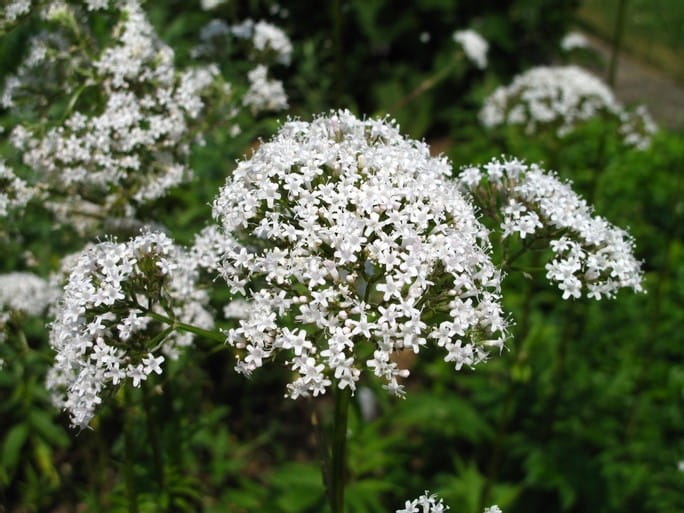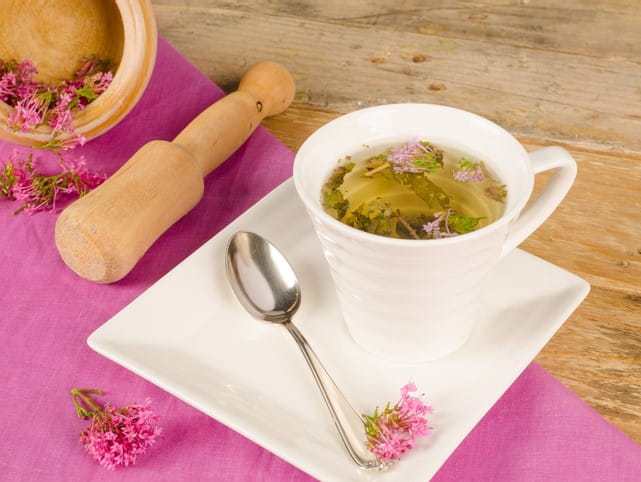Valerian Benefits and Risks

The Bottom Line
Valerian is an herbal dietary supplement sold over-the-counter (OTC) for its sedative and calming effects. It is generally considered safe and well-tolerated; however, scientific evidence showing its effectiveness is inconclusive.

The Full Story
Valerian is derived from the Valeriana plant, which is found in North America, Europe, and Asia. There are multiple species of Valeriana. In the United States, Valeriana officinalis is most commonly used as a dietary supplement in the United States (with teas, tinctures, capsules, and tablets made from its roots. Valeriana officinalis was used historically to help with sleep disorders and anxiety. Its use as a medicinal herb dates back to at least ancient Greece and Rome where it was recognized for its therapeutic uses by Galen in the 2nd century. During World War I, valerian was used to treat soldiers suffering from post-traumatic stress and in World War II it was used in England to relieve stress caused by air raids.
How valerian works is not well understood; however, some evidence suggests that its sedative effects might be caused by several of its chemical constituents including volatile oils and valepotriates. These constituents are theorized to lower anxiety and cause sedation working similarly to the benzodiazepine family of sedatives. Some components of valerian may have direct effects on the brain, affecting the neurotransmitter GABA. Amounts of these constituents in valerian can vary depending on when the plants were harvested, resulting in large differences in the amounts found in different valerian products. In addition,
There have been many clinical studies done to evaluate the effectiveness of valerian as a treatment for insomnia and anxiety. Overall, the evidence from these studies is inconclusive. In some studies, the use of valerian was found to improve sleep quality compared with placebo use, while other studies did not show any differences in sleep quality between patients who used placebo and those who used valerian. The dose and duration of use of valerian varied widely between these studies, making it difficult to form conclusions related to the effectiveness of valerian.
Valerian is generally considered fairly safe with few adverse effects reported. Daytime sedation and gastrointestinal disturbances have been reported to occur after use of valerian. There have also been a few reports of withdrawal symptoms in people who stopped taking valerian abruptly after long-term use. Rarely, the use of valerian may cause liver damage. Because of this, patients with liver disease should avoid using valerian-containing products. Since valerian may also affect the metabolism of other medications in the human body, individuals who are considering using valerian should consult with their physician prior to taking this product.
If you suspect an adverse reaction to valerian or are concerned that someone might have unintentionally taken too much valerian, immediately check the webPOISONCONTROL® online tool or call Poison Control at 1-800-222-1222 for help. Whether you call or logon, expert assistance is available 24 hours a day.
Kristina Yee, PharmD
Specialist in Poison Information
Poisoned?
Call 1-800-222-1222 or
Prevention Tips
- Keep valerian out of reach and sight of children or pets.
- Always tell your doctor and pharmacist about supplements you are taking, just as you do with your prescription and OTC medications.
- Use only USP-Verified herbal and supplement products.
This Really Happened
A 58-year-old man called Poison Control because he unintentionally took two valerian capsules instead of one for sleep. At the time he called Poison Control he didn’t have any symptoms. Poison Control checked its resources and determined that the additional amount of valerian shouldn’t be a problem for him. When Poison Control called him the next morning, the man was doing well and had not developed any symptoms.
For More Information
References
Hadley S, Petry JJ. Valerian. Am Fam Physician. 2003 Apr 15;67(8):1755-8.
Poisoned?
Call 1-800-222-1222 or
Prevention Tips
- Keep valerian out of reach and sight of children or pets.
- Always tell your doctor and pharmacist about supplements you are taking, just as you do with your prescription and OTC medications.
- Use only USP-Verified herbal and supplement products.
This Really Happened
A 58-year-old man called Poison Control because he unintentionally took two valerian capsules instead of one for sleep. At the time he called Poison Control he didn’t have any symptoms. Poison Control checked its resources and determined that the additional amount of valerian shouldn’t be a problem for him. When Poison Control called him the next morning, the man was doing well and had not developed any symptoms.
